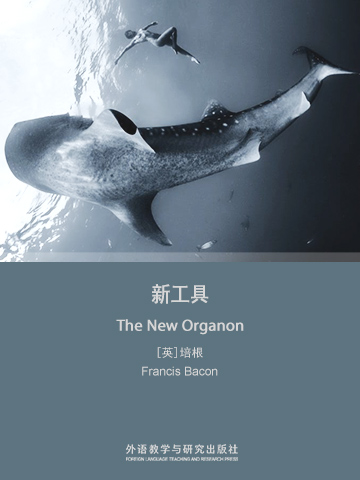知识就是力量,是促进科学研究的正确的方法。
Francis Bacon's New Organon was revolutionary in its attempt to give formal philosophical shape to a new and rapidly emerging experimental science. When it appeared in 1620, part of a six-part programme of scientific inquiry entitled 'The Great Renewal of Learning', Francis Bacon was at the high point of his political career, and his ambitious work was groundbreaking in its attempt to give formal philosophical shape to a new and rapidly emerging experimentally-based science. Bacon combines the oretical scientific epistemology with examples from applied science, examining phenomena as various as magnetism, gravity, and the ebb and flow of the tides, and anticipating later experimental work by Robert Boyleand others. His work challenges the entire edifice of the philosophy and learning of his time, and has left its mark on all subsequent philosophical discussions of scientific method.
本书是近代欧洲哲学中关于科学的认识理论和方法的重要著作。该书集中反映了培根的哲学思想,是英国资产阶级革命准备时期,新贵族和新兴资产阶级的新的世界观和方法论。《新工具》试图为近代新兴的自然科学制订一套正确的方法,对近代科学产生了深远的影响。培根就是在本书中提出了知识就是力量的著名思想。
It is a philosophical work by Francis Bacon, written in Latin and published in 1620. The title is a reference to Aristotle's work Organon, which was his treatise on logic and syllogism. In this book, Bacon details a new system of logic he believes to be superior to the old ways of syllogism. This is now known as the Baconian method.
For Bacon, finding the essence of a thing was a simple process of reduction, and the use of inductive reasoning. In finding the cause of a ‘phenomenal nature’ such as heat, one must list all of the situations where heat is found. Then another list should be drawn up, listing situations that are similar to those of the first list except for the lack of heat. A third table lists situations where heat can vary. The ‘form nature’, or cause, of heat must be that which is common to all instances in the first table, is lacking from all instances of the second table and varies by degree in instances of the third table.
The title page of the book depicts a galleon passing between the mythical Pillars of Hercules that stand either side of the Strait of Gibraltar, marking the exit from the well-charted waters of the Mediterranean into the Atlantic Ocean. The Pillars, as the boundary of the Mediterranean, have been smashed through opening a new world for exploration. Bacon hopes that empirical investigation will, similarly, smash the old scientific ideas and lead to greater understanding of the world and heavens.
- AUTHOR’S PREFACE
- BOOK ONE
- BOOK TWO
- 书评 写书评
- 笔记
-
书评加载中...













 京公网安备 11010802032529号
京公网安备 11010802032529号
笔记加载中...